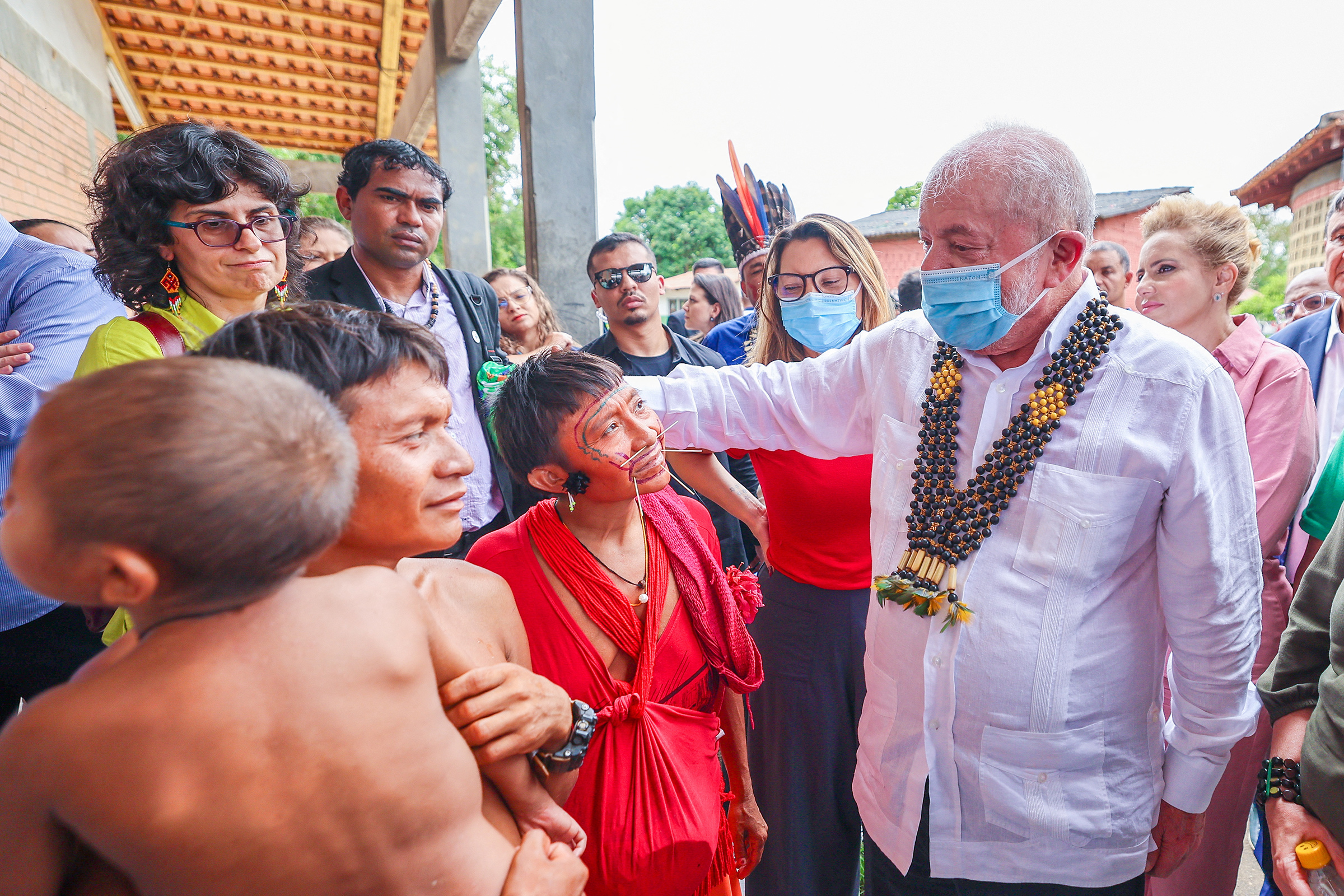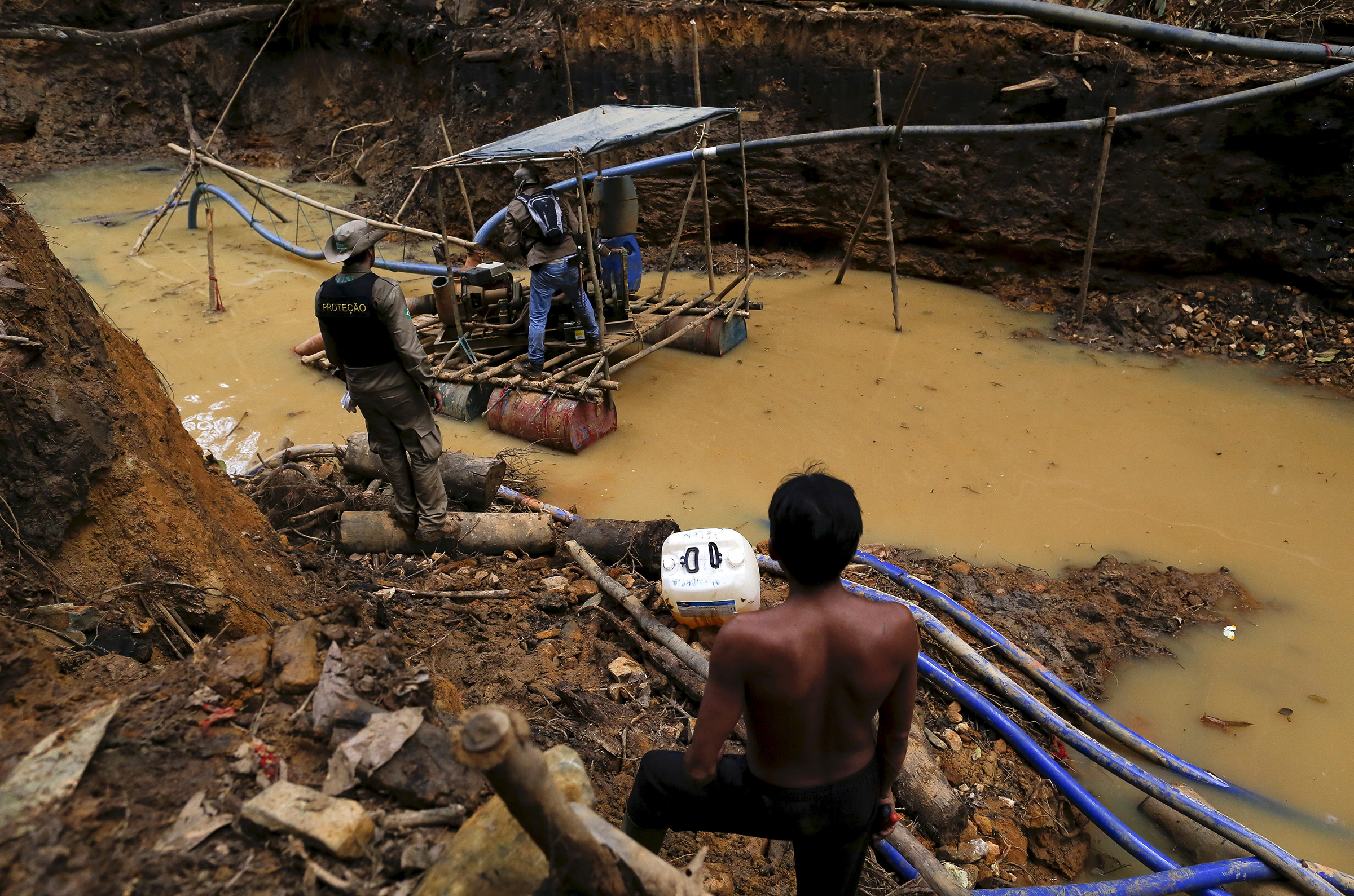
Brazil’s President Luiz Inácio Lula da Silva has accused his predecessor, Jair Bolsonaro, of committing “genocide” against the Indigenous Yanomami people of the Amazon.
Lula blamed the former President for enabling thousands of gold miners in a nationally-protected territory where mining is banned. As illegal mining flourished during Bolsonaro’s tenure, a humanitarian crisis emerged in the territory they call home that is roughly the size of Maine. The miners have been accused of poisoning rivers with mercury and wrecking forests; the Yanomami depend on both for food sources. Activists have also accused miners of death threats and sexual violence.
“More than a humanitarian crisis, what I saw in Roraima was a genocide. A premeditated crime against the Yanomami, committed by a government impervious to the suffering of the Brazilian people,” Lula tweeted on Sunday, a day after visiting a clinic for Yanomami patients in Boa Vista. He accused the previous government of disregard and neglect for encouraging the “invasion of 20,000 illegal miners.”
Close to 30,000 Yanonami people live in Brazil’s Indigenous territory that spans Brazil and Venezuela. They maintain a way of life based on fishing, hunting, and fruit gathering.
Lula also told reporters during his visit that he will eliminate illegal mining in Brazil but did not offer further details on policies or programs to achieve the goal.

Brazil’s Minister of Justice and Public Security Flávio Dino said last week that federal police would investigate the possibility of genocide and other crimes against the Yanomami people.
The accusation of genocide is controversial but critics of Bolsonaro say abuses against the Yanomami reflect his broader policies towards the environment and Indigenous people.
Susanna Hecht, director of the center for Brazilian studies at UCLA, notes it’s important to take into account Bolsonaro’s harmful rhetoric towards Indigenous people, including a statement from 1998 in which he said, “it’s a shame that the Brazilian cavalry hasn’t been as efficient as the Americans, who exterminated the Indians.”
“You can have a genocidal policy that has the effect of destroying a population without necessarily… sticking them…into a gas chamber,” Hecht says.
Bolsonaro has argued that the Indigenous population is standing in the way of Brazilian development and that they are “not really” Brazilian, she adds. “So that creation of otherness basically creates the discursive framework that permits absolute brutality vis-a-vis these populations.”
Experts note that Bolsonaro starved state institutions meant to protect Indigenous people and the environment.
“That protection of Indigenous people and the environment was really just decimated under Bolsonaro,” says Amy Erica Smith, an associate professor of political science and expert on Brazilian politics at Iowa State University. “At the same time that he reduced authority and resources to these agencies to protect Indigenous people and the environment, he was also perceived as having… come down firmly on the side of illegal miners.”
“There was no regulatory state capacity or interest in controlling any of the illegal activity. Under the Bolsonaro regime, it was a free-for-all,” adds Hecht says.
Bolsonaro has denied responsibility and dismissed the accusation of genocide as a “left-wing farce,” according to The Guardian.
Read more: Lula’s Victory in the Brazil Elections Is a Win for the Planet
Public health advocates have been vocal in recent years about threats faced by the Yanomami community as a result of mining. A report “Yanomami Under Attack” by the São Paolo-based nonprofit Socio-Environmental Institute found that in the last four years of Bolsonaro’s government, the death of children who were aged five or younger jumped 29% compared to the previous government. The report also found that the region was responsible for half of Brazil’s malaria cases and that more than 3,000 children were malnourished. Images showing malnourished children recently surfaced in local news reports.
“The mining activity changes the soil, creating puddles which are favorable for the malaria mosquito, and other diseases as well. Many miners also bring diseases with them. It’s a sanitary and humanitarian crisis,” Estêvão Benfica, geographer and one of the Socio-Environmental Institute researchers, told the Associated Press.
The Minister of Indigenous Peoples, Sônia Guajajara, said the government’s priority is getting a handle on malaria, malnutrition, and other issues that the Yanomami people face. “Every 72 hours a child is dying from one of these illnesses, according to the information we’ve received,” she said.
Guajajar has called for the miners to be expelled within the next three months.
More Must-Reads from TIME
- Cybersecurity Experts Are Sounding the Alarm on DOGE
- Meet the 2025 Women of the Year
- The Harsh Truth About Disability Inclusion
- Why Do More Young Adults Have Cancer?
- Colman Domingo Leads With Radical Love
- How to Get Better at Doing Things Alone
- Michelle Zauner Stares Down the Darkness
Write to Sanya Mansoor at sanya.mansoor@time.com